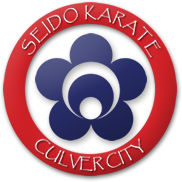Seido and The Shadow
Not long ago in Rome during a Master’s Tennis Tournament something remarkable happened. In a tightly contested game, American Andy Roddick challenged a linesman’s call on a ball hit by his opponent. The remarkable thing about this incident was that Roddick argued against his own interest. He insisted that the opponent’s ball had landed inside the line and that he, Roddick, should NOT be awarded the point. Spectators applauded as if they’d witnessed a miracle. Imagine! Sportsmanship in a professional sporting event.
Such adherence to the principle of “fair play” is especially remarkable in this day and age, when the broad culture places a higher value on winning at any cost than it does on playing by the rules and planning for the long term. According to geneticists and anthropologists, however, it was always this way, and will always be thus. In Dark Nature, naturalist Lyall Watson states that the study […]
